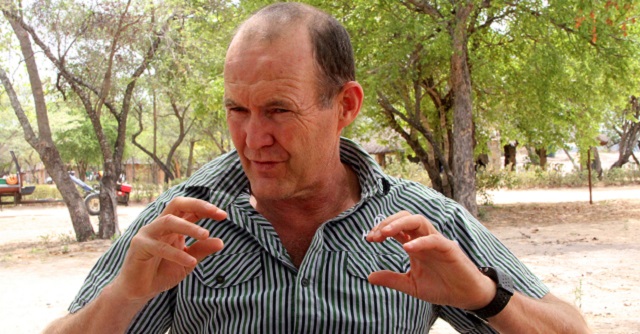
The Sunday News

Vincent Gono Gono, Features Editor
BUDGETARY constraints dogging the Government have affected its commitment to foster equal opportunities to vulnerable children that are housed in orphanages that are strewn in towns and cities as well as other social welfare services.
The Ministry of Public Service, Labour and Social Welfare says it is working round the clock to ensure that the gap between the vulnerable and those that are living comfortably is bridged by providing the necessary support even with the small purse at its disposal.
A number of orphanages and old people’s homes in the country have not been spared the agony of the country’s current economic situation that has seen the price of basic commodities soaring beyond the reach of many.
The situation has not been helped either with a serious donor fatigue seemingly crippling in living a social malady that needs a lot of State support, which is either not forthcoming or comes in dribs and drabs as social welfare itself is heavily burdened.
Our Features Editor, Vincent Gono (VG) talked to the Deputy Minister of Public Service, Labour and Social Welfare Cde Lovemore Matuke (LM) on these issues and more. Excerpts of the interview are below.
VG: Honourable Matuke, what is the Government’s position on assisting the vulnerable children especially in this current situation where the country is struggling with a lot of other basics?
LM: We have been proactive in that area. We have programmes as Beam (Basic Education Assistance Model) that we are still pursuing as part of efforts to ensure the right to education is guaranteed to every child.
We have supplementary feeding in schools across the country that we are running together with the Ministry of Primary and Secondary Education.
We will be visiting province by province the children and old people’s homes to assess the situation and see how best we can help. They are an important constituency of our ministry and have rights too.
VG: There have been some glitches with Beam, where there seem to be a number of anomalies and where pupils even on the programme ended up being expelled from school. Has that been resolved?
LM: We have heard those reports but we are saying we need to re-look at the model and see how best those who are supposed to benefit do so without facing problems of being expelled.
The problem was with assessing the deserving children. We however, urge schools not to expel those whose school fees are paid by the Government.
Our biggest challenge is the release of money for most of our social welfare services by the Treasury.
You are aware of the commitments and the challenges that the country is facing so it’s not always the case that we may have enough money to pay the fees.
Our partners are also struggling but we are hoping things will get better.
VG: The issue of food handouts and grants for the elderly. Are they still existing and how are they accessing them?
LM: Since 1980 people were receiving food handouts but that was not sustainable. We then thought of long lasting solutions and programmes for the vulnerable.
We came up with household projects such as community gardens with small irrigation and even talk of the revival of the Zunde raMambo concept as part of the sustainable solutions.
But as I mentioned before, we don’t normally get what we are supposed to get as a ministry.
Section 33 of our Constitution if I am not wrong provides for grants for old people but we have been limited in disbursing these by budgetary constraints.
We have also been facing disbursement glitches where the money would end up in the wrong hands because it was sent to them by means of phones.
We are still looking at that and creating a database so that there are easy of follow ups even with our officers.
VG: A lot of these programmes are limited to rural areas, giving the false impression that poverty and the vulnerable are not found in towns and cities as well. What is being done to close that gap and undo that notion?
LM: Thank you for that question. It is true that much of our programmes were concentrated in rural areas, much so because that is where much of our population is but you are going to see a change.
Urban areas are going to be part of the plan too. The President gave us an order not to spare the urban poor.
There are almost an equal number of poor families in town to those in rural areas and there are people who are living in towns permanently so we are debunking that misconception that the poor who deserve assistance are in rural areas.
VG: There has been an outcry over the kind of services at orphanages where basic foodstuffs and clothing have not been provided. What is your response to that?
LM: Those reports may be true. A majority of orphanages have not been receiving grants, some cannot even recall the last time they got the money and have largely been dependent on the few donors that still have something to spare.
But over the last few years, Government has been pushing for all orphanages in the country to provide family-style homes, with a small number of children of various ages living with a “mother” — a model that demands significant financial support which, unfortunately for the majority of children’s homes, has been drying off.
VG: The other issue is that of pensioners. Are you aware of the kind of life they are living, it’s actually a pity as most of them no longer afford the basics?
LM: The Government is fully aware of the troubles they go through and we have started to engage with other line ministries so that they do not spend time and money lining for amounts that are far less than their bus fare.
A decision to increase their pensions is being looked into and we hope very soon they will get something.
We are even looking at paying them in time and we just hope things will be right in the economy so that they enjoy the benefits of their labour.



